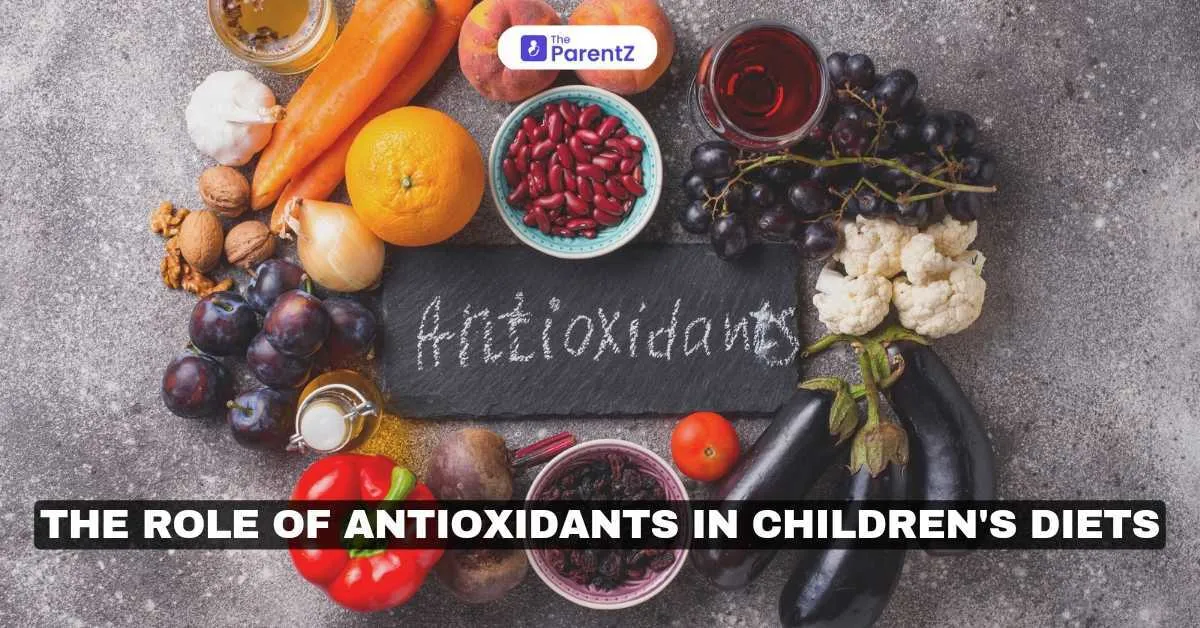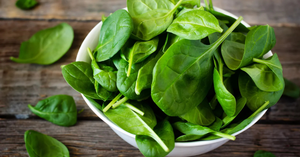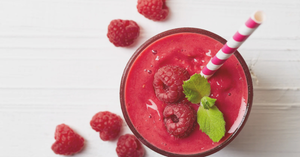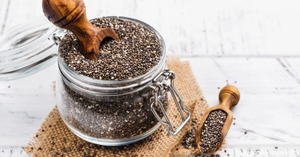Antioxidants are vital in our diets, critical in maintaining health and preventing disease. For children whose bodies and minds are developing rapidly, including antioxidants in their diet is crucial.
This article delves into the functions of antioxidants, the scientific research supporting their benefits, and practical ways to incorporate them into children's diets.
Understanding Antioxidants
What are Antioxidants?
Antioxidants can prevent or slow cell damage caused by free radicals. Free radicals are unstable molecules produced by various metabolic processes in the body. They can cause oxidative stress, leading to cell damage, and have been linked to multiple diseases and ageing processes.
Common Antioxidants
- Vitamin C (Ascorbic Acid): Found in fruits like oranges and strawberries, as well as vegetables like bell peppers and broccoli.
- Vitamin E (Tocopherol): Present in nuts, seeds, and green leafy vegetables.
- Beta-carotene: A precursor to vitamin A, found in carrots, sweet potatoes, and spinach.
- Selenium: A mineral found in nuts (especially Brazil nuts), seafood, and meats.
- Flavonoids: Present in a variety of fruits, vegetables, tea, and wine.
Functions of Antioxidants
Cellular Protection
Antioxidants protect cells from oxidative stress by neutralizing free radicals. This is particularly important for children as their cells are in a rapid state of growth and division, making them more susceptible to damage.
Immune Support
Antioxidants bolster the immune system, helping children fend off infections and illnesses. Vitamin C, for instance, is known to enhance the function of various immune cells and stimulate the production of antibodies.
Research has shown that antioxidants, particularly vitamins C and E, can significantly enhance immune function. A study published in the journal Nutrients found that children with higher intakes of these vitamins had fewer incidences of common colds and respiratory infections.
Cognitive Development
Certain antioxidants play a crucial role in brain health. For example, vitamin E helps protect neurons from oxidative damage, which is essential for cognitive development and function.
A study in the American Journal of Clinical Nutrition highlighted the role of antioxidants in cognitive function. Children who consumed diets rich in fruits and vegetables showed better performance in memory and learning tests compared to those with lower antioxidant intake.
Prevention of Chronic Diseases
Long-term benefits of antioxidants include the prevention of chronic diseases. Early consumption of antioxidant-rich foods can help reduce the risk of diseases such as heart disease, diabetes, and certain cancers later in life.
Growth and Development
The Journal of Pediatrics published a study indicating that children who received adequate amounts of antioxidants from their diets showed improved growth parameters and overall health compared to those with deficient intake.
Antioxidant-Rich Foods
Fruits and Vegetables
These are the most abundant sources of antioxidants. Berries (blueberries, strawberries), citrus fruits (oranges, lemons), and green leafy vegetables (spinach, kale) are exceptionally high in antioxidants. Including various colourful fruits and vegetables ensures a broad spectrum of these beneficial compounds.
Nuts and Seeds
Nuts like almonds and seeds like sunflower seeds are excellent sources of vitamin E and selenium. To boost antioxidant intake, these can be included as snacks or as meals.
Whole Grains
Whole grains such as oats, brown rice, and whole wheat provide antioxidants, fibre, and other essential nutrients. They support overall health and contribute to a balanced diet.
Legumes
Beans, lentils, and peas are rich in protein and fibre and contain various antioxidants. They can be incorporated into soups, stews, and salads.
Practical Tips for Parents
Encouraging a Variety of Foods
Offering a variety of colourful fruits and vegetables can make meals more appealing to children and ensure they receive a range of antioxidants. Aim for at least five servings of fruits and vegetables per day.
Healthy Snacks
Replace processed snacks with healthier options like fruit slices, mixed nuts, and veggie sticks. This can help increase antioxidant intake while reducing the consumption of unhealthy fats and sugars.
Educating About Nutrition
Teaching children about the benefits of healthy eating can encourage them to make better food choices. Explain how antioxidants help their bodies stay healthy and strong.
Limiting Processed Foods
Processed foods are often low in antioxidants and high in unhealthy fats, sugars, and additives. Limiting these can help improve overall diet quality and health.
Conclusion
Antioxidants are essential for the healthy development and functioning of children's bodies. By protecting cells from oxidative damage, supporting immune function, and contributing to cognitive development, antioxidants play a crucial role in maintaining health and preventing disease. Incorporating various antioxidant-rich foods into children's diets is vital for their growth and long-term well-being.








Be the first one to comment on this story.